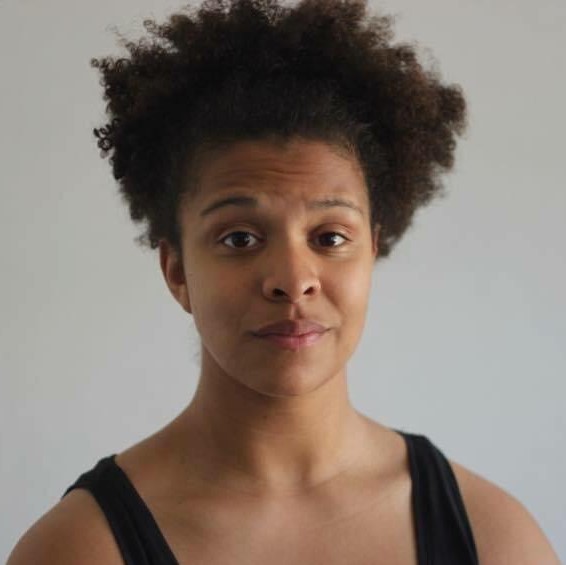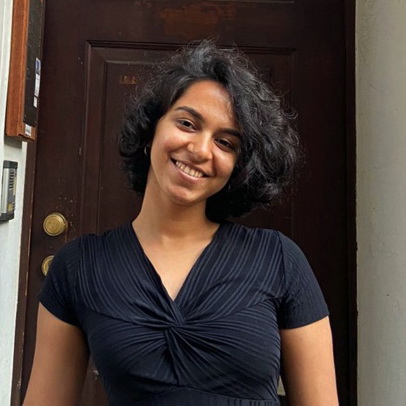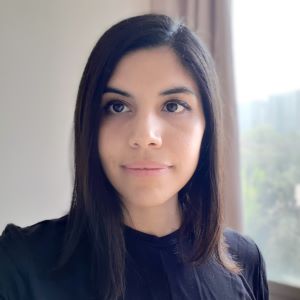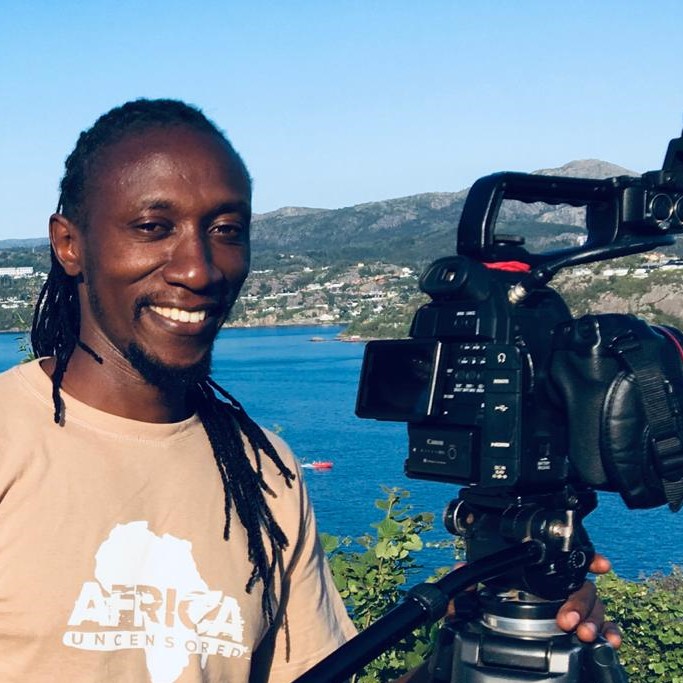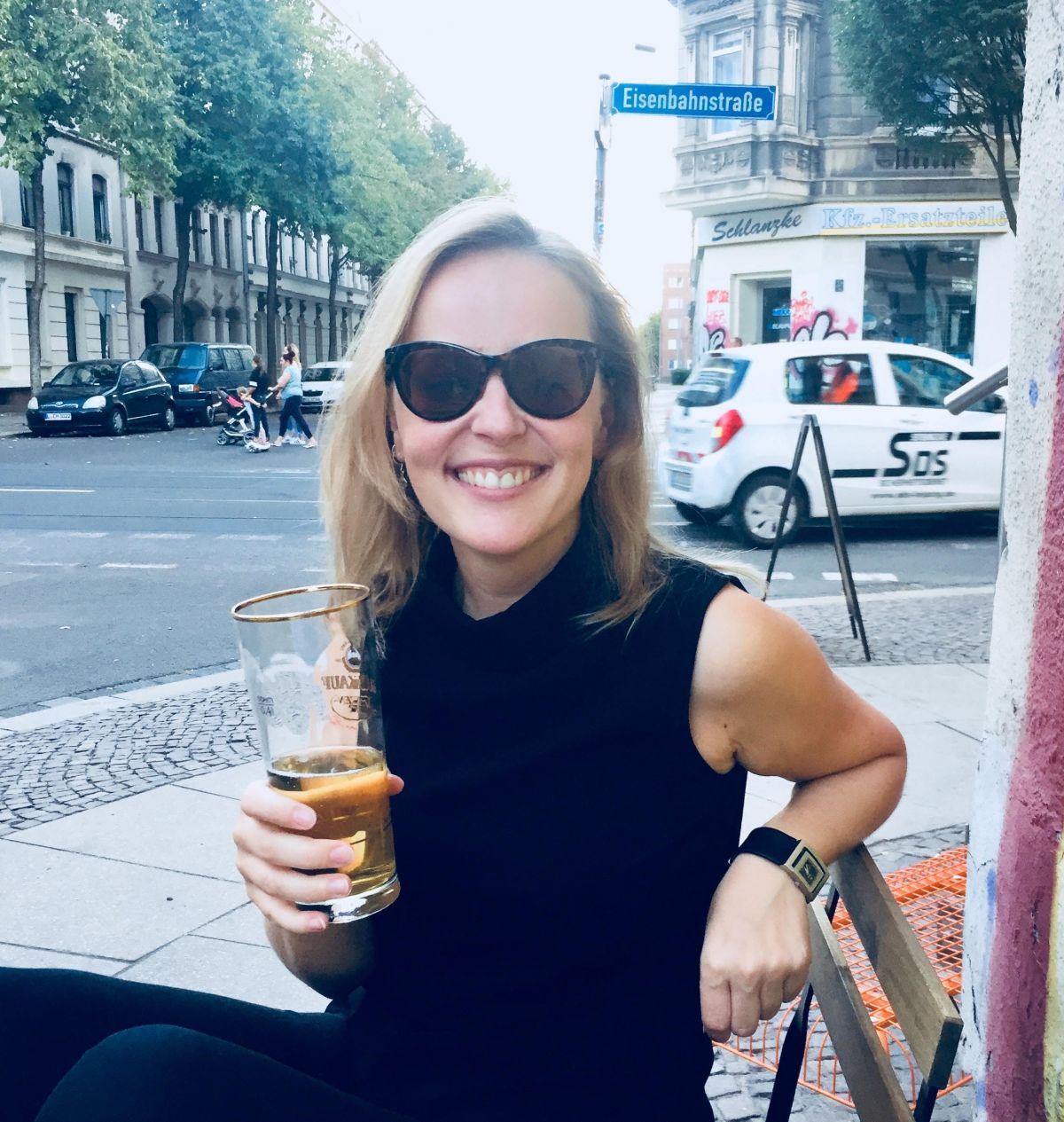Black Lives Matter: An Experience in the Train
As a black woman here in the Netherlands, I may not be murdered for the colour of my skin, but that does not mean that racism doesn't exist in the Netherlands.
Netherlands, Western Europe
Story by Naomi Beijer. Edited by Joost Backer. Translated by Hannah van Dijk
Published on August 24, 2020.
Reading time: 3 minutes
This story is also available in 





‘Are you all right here?’
I almost doubted it myself when the conductor asked that question. Apparently it is necessary for this person to ask me that. Earlier we had already exchanged glances and the look he gave me already predicted that the best man was going to ask me this. It felt uncomfortable when my suspicion was confirmed.
‘Yes, I am allowed to sit here. I have a valid first class ticket. But... Why are you asking me this question?'
I just asked. I just couldn't keep quiet. And why should I? I think I caught the conductor expressing prejudice. His question in itself does not seem so terrible. But the look he gave me, the intonation and the explanation that followed made me angrier and angrier.
‘Yes, you are sitting here alone. That is weird.’
Is it so weird that I am sitting here? Am I perhaps too young to be in first class? Or too black? Would he have asked an older white man the same question if he was sitting here alone?
‘Indeed, I am sitting here alone. However, I still don't understand why you are asking me this question.’
‘It is been taken advantage of these days.’
Is he saying he's assuming I'm taking advantage of it? I think it is very clearly indicated what first and second class is. I am deliberately sitting here with a valid ticket.
‘I would never do that sir. I know this is first class. I find your explanation a little strange. Especially with all that has been going on this week.’[1]
His transceiver goes off. This is a good reason for the conductor to exit the conversation. I see the discomfort in his body language and he rushes into another cabin. I am left behind thinking that he would come back to finish our conversation, but a little later I see that he is avoiding me. Very unfortunate.
Don't get me wrong. In general, I have a good life. I was allowed to study, I have my mother and I have a nice boyfriend. I have a good job and, overall, I am happy. But these innocent-looking incidents happen to me too often. When I buy a knife in the shop, people run away from me. When I go to the theatre I get checked, checked and even laughed at. People call me names when I criticize them. People are surprised when they see me at professional get-togethers, because 'what a special appearance I am'. I am not going to keep my mouth shut about this anymore. I am no more or less than anyone else. That is enough.
Black lives matter. It is a crazy sentence, actually. It implies so much.
It indicates a difference. A difference in how people are treated. A difference in how life in this world is apparently different for non-white people than it is for white people. It is a sentence that I really hoped I would not have to say now. But last month I had to shout it. The difference can be big, like in the US. But also subtle and venomous, as it often is here in the Netherlands. In this country it is not only in the communication between people, but even anchored in our systems. Think of ethnic profiling at the Tax and Customs Administration, structurally less chance for job applications and low recommendations considering schools.
And above all: this difference is there consciously and unconsciously. Prejudice is human, that is how we understand the world around us better, but they do not have to be expressed. I don't believe that the conductor was aware of expressing his prejudice, but it does indicate how deep it is.
This story was originally written by Naomi in Dutch.
Footnotes
[1] This conversation took place during the week that a Black Lives Matter protest had taken place in Amsterdam, which was much talked about during that week (June 2020). There was also controversy as to whether it was wise to protest at all in times of corona.
How does this story make you feel?
Follow-up
Do you have any questions after reading this story? Do you want to follow-up on what you've just read? Get in touch with our team to learn more! Send an email to [email protected].
Talk about this Story
Please enable cookies to view the comments powered by Disqus.
Subscribe to our Monthly Newsletter
Stay up to date with new stories on Correspondents of the World by subscribing to our monthly newsletter:
Tags
Topic: Liberation
> United States
The Birth of Understanding One’s Privilege
A story by Sidra Kennedy
4 min English Audio available
There were 9 of us on the program, a group of white, North American and European 18- and 19-year-olds. And once we stepped into the clinic, all people saw was that we were white. Read more...
> Netherlands
Waarom ik me verkiesbaar stel voor de Europese Verkiezingen 2024
A story by Anna Koolstra
3 min
Een gesprek met Anna Koolstra, een van de jongste kandidaten die op 6 juni aanstaande verkiesbaar is voor het Europees Parlement. Read more...
> India
On Rasam and Identity
A story by Janani Padmanabhan
5 min
Rasam is the answer to everything, or so I was told during my middle-class vegetarian Tamil brahmin upbringing. Read more...
Explore other Topics
Get involved
At Correspondents of the World, we want to contribute to a better understanding of one another in a world that seems to get smaller by the day - but somehow neglects to bring people closer together as well. We think that one of the most frequent reasons for misunderstanding and unnecessarily heated debates is that we don't really understand how each of us is affected differently by global issues.
Our aim is to change that with every personal story we share.
Community Worldwide
Correspondents of the World is not just this website, but also a great community of people from all over the world. While face-to-face meetings are difficult at the moment, our Facebook Community Group is THE place to be to meet other people invested in Correspondents of the World. We are currently running a series of online-tea talks to get to know each other better.











